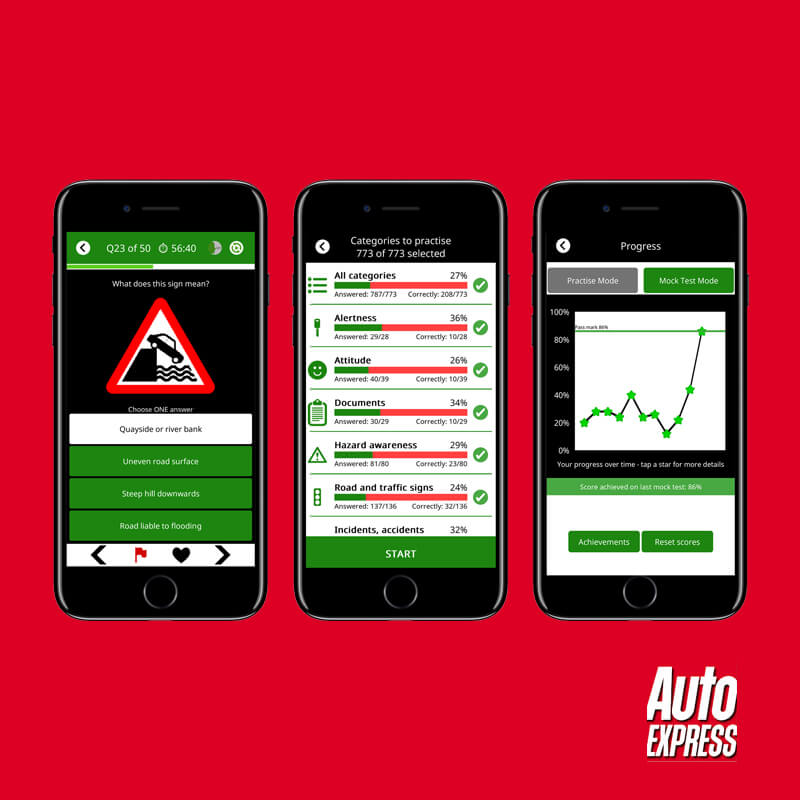How ADIs manage aggressive pupils

It’s vital that ADIs know how to manage aggressive pupils, and depending on how long you’ve been a driving instructor
Chances are you will have had a pupil who either overtly has episodes of road rage or behaves in a way that could make them a future road rage driver.
What do you do with these aggressive pupils? As a driving instructor, it can be argued that it is your duty to tackle these types of students.
Simply ignoring their attitude is in effect normalising their behaviour.
If a driving instructor doesn’t have a problem with their aggression then why should they care if other road users do?
While it isn’t easy to deal with aggressive pupils, they can be managed and they can be helped during the learning process. In fact, these early stages are vital.
If you’re not sure whether your pupil could develop into an aggressive driver here are some subtle signs you could look out for:
- driving or stopping too close to a car that is driving slower
- muttering profanities aimed at other road users under their breath
- staring down other road users
- using the vehicle to intimidate road users
- needless over revving
Remember. This is the pupil at their best behaviour because you’re in the car with them. Imagine what they’ll be like in their own car without your watchful eye!
So what do you do when this happens? Firstly, it’s important to understand where their aggression is coming from.
Are they showing signs of aggression because they feel anxious or because they feel overconfident?
Anxious aggression
Sometimes, when people are anxious and are placed in high-pressure situations they respond by behaving aggressively.
All the stress, anxiety and pressure from a given situation means that the person is faced with a fight or flight situation.
The pupil technically cannot run away from the situation so to them their only option is to fight. That’s not to say that this is a conscious decision that people take.
The key to dealing with this type of aggression is to minimise the amount of pressure and stress that the person is feeling at that moment or for that scenario.
For example, are they really ready to go on roundabouts?
Do they need 10 minutes at the start of the lesson to do basic driving drills?
Does the pupil know what they need to be doing for this situation?
When this type of aggression happens it’s usually best, when it is safe to do so, to ask the pupil to pull in to a safe place. Ask them what happened, describe to you the situation that just happened. Ask why they behaved like that and then explain to them the dangers of aggressive drivers.
Not only do they become a danger to other road users but they become a danger to themselves and their passengers.
Let them know that you’ll work with them on building their confidence up in that specific situation. For example, if its roundabouts that cause the anxious or aggressive behaviour, spend the lesson if possible covering roundabouts.
Talk through the procedure and ask them how they’re feeling. You will see very quickly how their attitude and behaviour improves as their confidence does. Reduce their anxieties and you’ll reduce their aggression.

Aggression from overconfidence
All driving instructors will come across confident learners. From time to time though, a driving instructor will have an over-confident learner who will behave in an aggressive manner towards other road users.
For one reason or another, they will feel like they are extremely skilful drivers and therefore are always in the right.
However, when they make a mistake they tend to try and cover it to themselves or others by behaving in an aggressive way.
When these learners behave in an unacceptably aggressive manner you should ask them to pull up in a quiet and suitable place.
Ask them to describe what happened but allow them to finish.
Remember you do not want to turn it into a debate as this may escalate the situation.
You can then let them know that as a qualified driving instructor with so many years of experience you know best.
It is your job to keep them safe by correcting them when they are wrong and it is their job as a learner to listen and follow your instruction.
You are ultimately responsible for them, their behaviour and their safety.
Again, it is important that they understand from you that their manner of driving will likely cause an accident or result in penalty points on their licence which they can not afford to have as a new driver or for their insurance.


